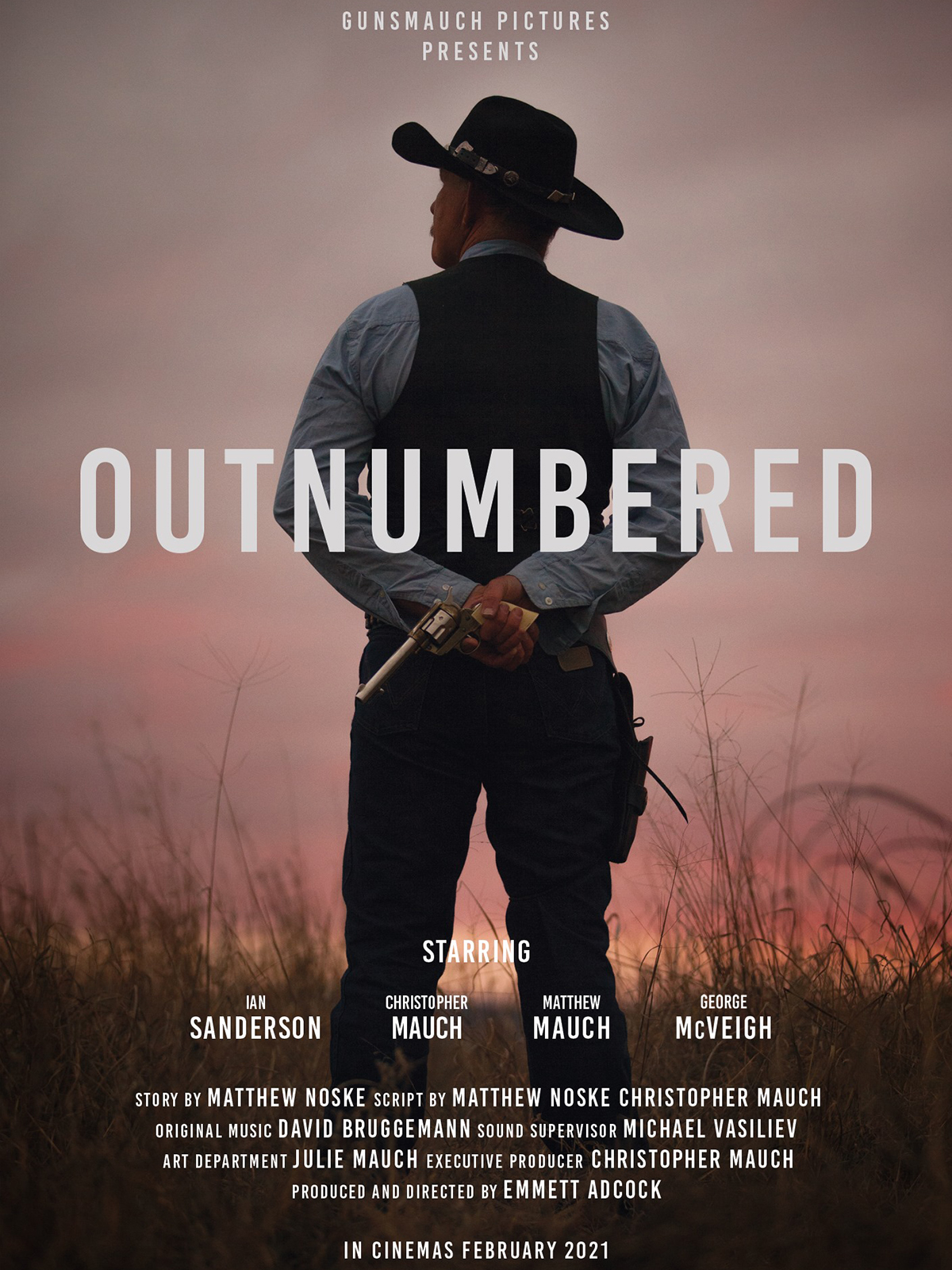
- Interviews
“Outnumbered”: Interview with Chris Mauch and Ian Sanderson
Growing up as a fifth-generation cattle farmer on a ranch outside Warwick, a small town in southeast Queensland, Australia (about 130 kilometers southwest of Brisbane,) Chris Mauch always wanted to be in a western. So, like any resourceful man, he decided once he got older to make one on his own. Enlisting his family and friends, which included his wife, two sons, father, uncle, cousin and brother-in-law, along with his former wedding photographer recruited to serve as the film’s director and cinematographer, the former Freestone Crowbars Rugby player wrote and stars in Outnumbered. The story follows two brothers who come upon a stagecoach robbery and rescue the lone survivor. Little do they know that that act of bravery has led them to become prey by a psychotic criminal, who leads a gang of robbers and murderers who will stop at nothing to control the land they live on.
Chris, This story has been brewing with you for over 9 years. It started as a short and eventually grew into this feature movie. How did the idea initially come to you?
I spend a lot of hours on the farm, as I am a farmer here in Australia. I work long hours so I had plenty of time to think. Clint Eastwood and Westerns were very big over here. You don’t see those types of westerns anymore. So, I wanted to do something similar that he had done.
At the core of the story are these two brothers. You didn’t cast your brother, you actually hired your cousin Matt. Which one had the better skill set to capture the essence of these characters? Who was the better horseman? Who was the better shooter?
We are always practicing against each other when it comes to gunfighting (laugh). We both grew up together on the farms here in Australia. Matt is quite good on the horse and won a national rodeo steer wrestling title here. He is pretty well adapted to fit into the character he plays. As far as gun fighting, I will put my hand up. I am faster than him. I was involved with rodeo myself and was bull riding when I was young for a lot of years but sustained some pretty nasty injuries but then went back. I just had to get over that fear factor. As far as the acting goes, Matt was quite good. The whole script was written not too far off our natural characters. I didn’t have too much trouble slotting into my character. I did have to go through some mental changes to have to play that character but didn’t really have a lot of trouble, even when we were young, we would go out, drink beer and chase girls, it was Matt who would get in trouble and me pulling him back saying don’t do that. That is why we suited the script that was written for us.
So much of American masculinity has been defined by the Western and its archetypes. As this film takes place in Australia, how much has that culture helped define what a man is?
Very similar to America I would say. A lot of Californians had come out here in the gold rush days looking for gold. There were bandits and bush wranglers that we called them. They brought the Colt and Winchester gun philosophy with them. Men were judged on their work ethic and their honesty. I think it would have been on parallel.
Ian, with any film, a good protagonist needs a good antagonist. So what was your process to finding Crocker’s evil?
I am not pure evil. My character is a bit of a red bad, running around getting into a bit of trouble here and there. It is not blood-thirsty cold-blooded murder. It was just a job to me and that is how I took it on.
Did you have any frames of reference for who you wanted this villain to look like?
I cannot pinpoint one at the moment. It was not any (one) specifically. I just wanted to create my own character but emulating other bad guys that you might have seen in other John Wayne’s or Clint Eastwood’s Westerns.
The Western always provided a clear delineation between good and evil. Yet when the two of your characters have a face-to-face, there is this fascinating conversation about the fact that you are both killers, just for different reasons.
ANDERSON: it’s just business.
MAUCH: Personal for me.
SANDERSON: It’s just business. I have already killed today (laugh). But not human!
MAUCH: Probably because of my character’s past, he lost his father when he was young and then went off to war. He found that it was easy to kill because of his past. He really didn’t want to get back into that scene but he had no choice. Either kill and make things right or be killed and have his family killed.
How cool was it for both of you to be in a shootout? Does it immediately transport you back to your boyhood?
MAUCH: Absolutely loved it. We had a ball. Loved being on set and we had so much fun. There were never any arguments.
SANDERSON: We got to go to work and shoot guns. I loved the Gatling gun; that is until the end (laugh). That became a bit of a problem.

